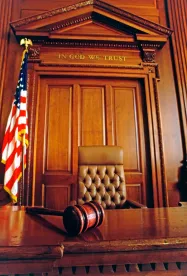On Jan. 20, 2015, the Third Circuit upheld former Canadian stockbroker George Georgiou’s securities fraud conviction under Section 10(b) of Securities Exchange Act, determining that the transactions were “domestic” under Section 10(b) of the Securities Exchange Act because “irrevocable liability” for the transactions occurred in the United States.
The opinion provides further clarification of the United States Supreme Court’s 2010 ruling in Morrison v. National Australia Bank Ltd. that Section 10(b) applies to deceptive conduct in (1) the purchase or sale of a security listed on an American stock exchange, or (2) the purchase or sale of any other security in the United States.
Georgiou had been convicted for manipulating the market of four United States stocks listed on the OTC Bulletin Board or the Pink OTC Markets, Inc. (the “Pink Sheets”) by using brokerage accounts in Canada, the Bahamas and Turks and Caicos to manipulate trades to artificially inflate the prices of the stocks. At least some of the trades were made through market makers in the United States and some in-person meetings about the fraud occurred in the United States.
On appeal, Georgiou argued that his conviction was barred under Morrison because there was no proof that any of the securities transactions occurred in the United States and Section 10(b) therefore had been applied extra-territorially.
The Third Circuit first addressed whether the OTC Bulletin Board or the Pink Sheets are American stock exchanges for purposes of Section 10(b). The Court determined they are not, noting that neither is listed as registered by the SEC. The Third Circuit also looked to the Act’s separate references to “securities exchanges” and “over-the-counter markets,” suggesting that one is not inclusive of the other.
The Third Circuit then looked at whether the transactions could be domestic transactions of securities not listed on American stock exchanges under Section 10(b). The Court distinguished Morrison, where all aspects of the trades at issue occurred outside of the United States, noting that Georgiou’s fraud involved stocks of United states companies and at least some of the trades occurred through United States market makers.
Under Morrison, whether transactions are “domestic” is determined not by where the deception originated, but where the purchase and sale of the securities occurred. Applying that standard, the Third Circuit followed other Circuits in holding that the purchase and sale of securities occurs where the parties incur “irrevocable liability” to carry out the transaction.
The Court determined that facts demonstrating “irrevocable liability” include the location of the formation of contracts, placement of purchase orders, passing of title or the exchange of money. In contrast, heavy marketing in the United States, a party’s residency or citizenship or origination of the deception in the United States do not establish “irrevocable liability” in the United States.
Applying those principles to Georgiou’s scheme, the Court determined the transactions were “domestic” because at least some of the transactions involved a seller or purchaser working with a market maker and committing to the transaction in the United States or passing title in the United States, and some stocks were bought or sold at Georgiou’s direction from entities located in the United States.




 />i
/>i

